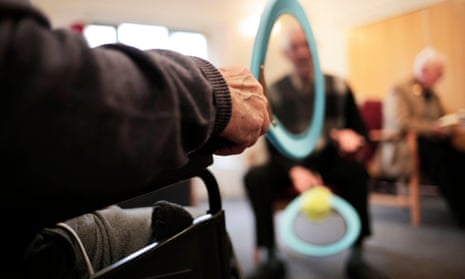Dozens of home care companies in England fear collapse because invoices are going unpaid by councils and the NHS.
Hundreds of millions of pounds in unpaid bills are threatening parts of a care industry already stretched by a recruitment crisis and rising wages, according to research by the Institute of Health and Social Care Management (IHSCM).
One company, which has 60 care workers, said it had stopped working with the council or people funded by the NHS because “there is a high risk of financial failure because you can’t pay the payroll”.
Caroline Southgate, the managing director of the Doris Jones care agency, said: “If they don’t address this they are never going to address their discharge problem in the NHS. We have had people die and have been chasing the NHS for a year and a half for the money.”
More than one in five home care providers surveyed said they feared the collapse of their business in the next six months because of unpaid bills.
More than £679m owed to care providers in England has been outstanding for more than 30 days, the IHSCM estimates, of which £567m relates to delayed payments by local authorities and £112m is to do with delayed payments from NHS integrated care boards for continuing healthcare services. More than 60% of respondents said they had at least one or more invoice still unpaid after six months.
Adam Purnell, the director of social care at the IHSCM, said: “These findings are indicative of a deeply concerning trend that cannot be ignored. The impact of delayed payments goes far beyond mere statistics; it cripples care providers who are already facing immense challenges from insurance costs, rising energy bills and workforce shortages.”
There are 152,000 social care vacancies in England, figures show, despite rising demand from an ageing population with increasingly specialised care needs.
Jane Townson, the director of the Homecare Association, said: “Late payment of invoices by NHS integrated care boards and local authorities is a serious issue, threatening the financial viability of home care providers. Some have spent months fighting for thousands of pounds owed for care delivered, being pushed from pillar to post without resolution. There is no possible excuse for this.”
A spokesperson for the Local Government Association, which represents councils, said: “Councils continue to work closely with adult social care providers in the private and not-for-profit sector and are acutely aware of the financial pressures they are under. Councils do all they can to avoid exacerbating those pressures.
“Processing payments at the scale that councils do means there are inevitably complexities which can sometimes cause delays, such as when required information in an invoice is not given. A vast majority of payments made by local authorities are correct and on time. Councils have absolutely no deliberate intention to pay late.”
after newsletter promotion
NHS England was approached for comment.
The cashflow problems threaten to lengthen the extensive waiting lists for social care. Despite an improvement since the pandemic, 430,000 people were waiting to access care at the end of March, resulting in the continued deterioration of the health and wellbeing of thousands of people awaiting assessments.
The shortage of social care creates blockages in the NHS. About 12,000 people in England await discharge from hospital beds they no longer need, NHS data shows, with access to care at home a major problem.
